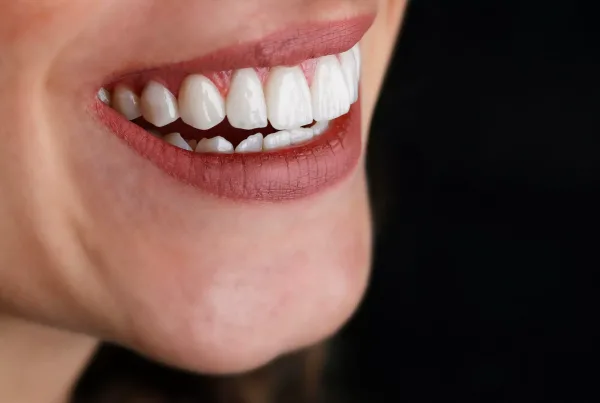
Dental and gum health are crucial for our overall well-being. Dental problems causing pain and discomfort can adversely affect our daily lives and lead to permanent damage if not addressed. Sometimes, these issues can be serious enough to require emergency intervention. In this article, we’ll explore situations that necessitate an emergency visit to the dentist.
What is a Dental Emergency?
A dental emergency refers to unexpected dental or gum problems that require immediate and urgent intervention. These situations typically arise suddenly and can lead to severe consequences if not promptly treated.
Dental emergencies can result from various causes, such as pain, trauma, infections, or sudden changes in dental and gum structures. These issues cause discomfort and pain for the patient, hindering daily activities. Thus, dental emergencies need to be addressed quickly and effectively.
Situations that may qualify as dental emergencies include:
- Sudden and severe toothache
- Broken or knocked-out teeth
- Gum bleeding and swelling
- Teeth getting stuck or falling out
- Infections or abscesses in the gums or teeth
- Traumatic injuries or damage from a blow to the jaw
Dental emergencies require immediate attention from a dentist and should be treated promptly. Prompt handling of such situations is essential for preserving the patient’s dental health.
Circumstances That May Be Considered Emergencies
Dental issues can manifest with various symptoms that require quick intervention. Here are some scenarios that might be considered dental emergencies:
- Pain and Severe Dysfunction: Sudden and intense toothache, difficulty chewing or speaking, and functional problems often necessitate emergency dental intervention. This typically stems from root infections, dental abscesses, or severe flare-ups of gum disease.
- Broken or Knocked-Out Teeth: Teeth breaking or getting completely knocked out are considered emergencies. These situations may result from impacts, accidents, or traumatic events. Prompt intervention can help save the tooth and prevent long-term complications.
- Gum Bleeding and Swelling: Gum bleeding can be a sign of severe gum disease and, if untreated, can increase the risk of infection. Swelling or sensitivity in the gums also warrants an emergency dental visit.
- Chronic Pain and Inflammation: Chronic pain or inflammation in the gums, teeth, or surrounding tissues may require emergency dental intervention. These conditions often indicate severe infections or dental abscesses.
These situations call for urgent dental intervention to prevent potential complications. Early diagnosis is crucial.
Reasons for Urgency and Possible Dental Interventions
In dental emergencies, there are various interventions a dentist can perform. Here are the reasons for urgency and possible dental actions:
- Pain and Dysfunction Relief: The emergency dentist can use local anesthetics or other medications to alleviate pain and reduce dysfunction. This helps the patient relax and makes treatment more accessible.
- Treatment of Trauma or Fractures: Dentists can repair broken teeth or reattach knocked-out teeth. Post-trauma gum or jaw injuries also require appropriate treatment. These situations should be handled quickly.
- Infection Treatment: Dental abscesses or root infections can be treated with antibiotics and, if necessary, drainage. Controlling infections helps prevent other complications.
- Control of Bleeding and Swelling: Dentists can control gum bleeding or swelling, usually through cleaning, antimicrobial rinses, or local treatments. If left uncontrolled, bleeding and swelling increase the risk of infection.
- Other Emergency Interventions: The emergency dentist can address other urgent situations, such as loosening teeth stuck together or performing extractions when necessary.
These interventions help the patient find relief while also preserving dental health.
What Can Be Done Until Reaching the Dentist?
When faced with dental emergencies, seeing a dentist as quickly as possible is best. However, some steps can be taken until reaching the dentist:
- Using Pain Relievers: Over-the-counter pain relievers like ibuprofen or acetaminophen can help reduce sudden tooth pain. However, consult a healthcare provider before using prescription medications.
- Applying Cold Compress: If there is swelling or pain in the gums, applying a cold compress can reduce the swelling and alleviate pain. Use a clean cloth or ice pack on the affected area for 15-20 minutes.
- Brushing and Flossing: Gum bleeding or tooth pain may indicate gum disease. Regular brushing and flossing can help maintain oral hygiene and prevent symptoms from worsening.
- Consuming Soft Foods: If you have a broken tooth or difficulty chewing due to pain, it is recommended that you eat soft foods. This helps nourish the teeth without putting too much pressure on them.
- Booking a Dental Appointment: Immediately seek an emergency dental appointment. The earlier the dental issue is treated, the lower the risk of complications.
These steps can provide temporary relief and help manage the situation until professional dental care is obtained.
Situations Where the Emergency is Uncertain
Some situations create uncertainty about whether they constitute an emergency. Here are some instances where the emergency status may not be straightforward:
- Minor Fractures or Injuries: Small fractures or gum cuts might not require immediate intervention but should still be reviewed by a dentist.
- Mild Pain and Discomfort: Mild pain or discomfort usually doesn’t require emergency care, but if symptoms worsen or persist, a dental consultation is advised. Sometimes, mild pain can indicate more serious issues like gum inflammation or tooth sensitivity.
- Temporary Complaints: Temporary tooth pain or sensitivity is often self-resolving, but professional evaluation is recommended if it continues or increases. Temporary complaints might signal a more severe condition.
- Unclear Symptoms: Unclear symptoms might not indicate an emergency but should still be noted. Symptoms like mild swelling or slight bleeding could develop into more serious issues over time.
- Professional Evaluation: In any doubtful situation, a professional evaluation is recommended. Discussing symptoms with a dentist and seeking appropriate advice ensures proper care.
In case of doubt about dental emergencies, it’s best to err on the side of caution and consult a dentist.





